- No products in the cart.
Understanding Isopropyl Alcohol (IPA) vs. Ethanol: A Comparison
May
28
2023
Isopropyl alcohol (IPA) and ethanol are two commonly used alcohols with a wide range of applications. While they share similarities, they also exhibit distinct characteristics that make them suitable for different purposes. In this blog, we will explore the chemical properties, uses, and effectiveness of IPA and ethanol. By understanding their similarities and differences, we can better appreciate their significance in various industries and gain insights into choosing the right alcohol for specific applications.
Chemical Properties:
Isopropyl alcohol, also known as 2-propanol or IPA, and ethanol, commonly referred to as ethyl alcohol, have similar chemical structures as both belong to the alcohol functional group. However, they differ in the arrangement of their carbon and hydrogen atoms. IPA has three carbon atoms, while ethanol has two. Both alcohols are colorless liquids with distinct odors. IPA has a boiling point of 82.6°C (180.7°F), while ethanol boils at 78.5°C (173.3°F). Both alcohols are miscible with water and exhibit antimicrobial properties, making them effective as disinfectants.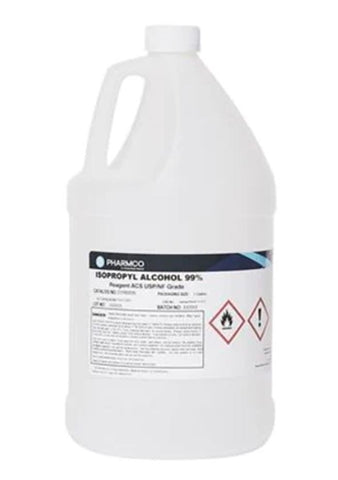
Uses and Applications:
IPA and ethanol find extensive use in various industries and applications. IPA is commonly employed as a solvent in laboratories and manufacturing facilities. It is used for cleaning electronic components, removing oils and residues, and dissolving various substances. IPA is also widely used as a disinfectant for medical equipment, surfaces, and skin preparation. Ethanol, on the other hand, has numerous applications in the pharmaceutical, food and beverage, and cosmetic industries. It is a key ingredient in the production of alcoholic beverages, hand sanitizers, perfumes, and pharmaceutical products. Ethanol is also used as a fuel additive and a solvent in certain manufacturing processes. Both IPA and ethanol play essential roles in the production of chemicals, inks, and cleaning agents.
Effectiveness in Disinfection and Sanitization:
When it comes to disinfection and sanitization, both IPA and ethanol are effective against a wide range of microorganisms. They denature proteins, disrupt cell membranes, and inhibit microbial growth. IPA is commonly used as a disinfectant in healthcare settings, laboratories, and cleanrooms. Its rapid evaporation rate makes it suitable for disinfecting surfaces without leaving residue. Ethanol, particularly in concentrations of 60-70%, is widely used as a hand sanitizer due to its effectiveness against bacteria and viruses, including enveloped viruses like SARS-CoV-2. Both alcohols are effective in killing germs, but ethanol may have a slight advantage in terms of its broad-spectrum activity.
Safety and Regulatory Considerations:
When working with IPA and ethanol, it is important to consider their safety and regulatory aspects. Both alcohols are flammable and should be handled with caution. Proper ventilation and storage practices should be followed to minimize the risk of fire. In terms of regulatory guidelines, ethanol is regulated more strictly due to its potential for misuse as a recreational beverage. The purity and concentration of ethanol used in various applications must comply with regulations specific to each industry and region. IPA, on the other hand, is typically less regulated. It is crucial to adhere to safety protocols and consult relevant regulations when handling these alcohols in different settings.
Similarities
- Both IPA and ethanol are clear, colorless liquids with a slightly sweet odor.
- Both are flammable and can be used as fuels.
- Both can be used as disinfectants and cleaners.
- Both can be irritating to the skin and eyes.
Differences
- IPA has one more carbon atom and two more hydrogen atoms than ethanol.
- IPA is a slightly more polar molecule than ethanol.
- IPA is generally considered to be more effective as a disinfectant than ethanol.
- Ethanol is more effective than IPA as a fuel.
- IPA is more toxic than ethanol.
In conclusion, understanding the similarities and differences between isopropyl alcohol (IPA) and ethanol provides valuable insights into their chemical properties, uses, and effectiveness in various applications. Both alcohols play significant roles in laboratories, manufacturing processes, disinfection, and personal care. Whether you require a solvent for dissolving substances or a disinfectant for surface cleaning, selecting the appropriate alcohol—IPA or ethanol—depends on the specific needs of your application and the regulatory guidelines in your industry. By recognizing the distinct attributes of IPA and ethanol, scientists, researchers, and professionals can harness the power of these alcohols to achieve optimal results in their respective fields.
For over 40 years, Lab Pro Inc. has been committed to delivering highest quality chemicals such as IPA and ethanol, lab supplies, hand tools, lab equipment, reagents, distance learning kits, and cleanroom PPE apparel. Renowned by global medical device companies and laboratories, we ensure exceptional quality in every product. Contact us online or call 888-452-2776 to learn more. Discover top-notch lab supplies and elevate your experiments today!







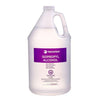

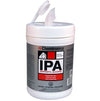
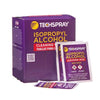

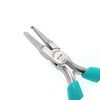
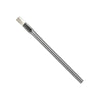
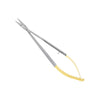
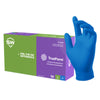

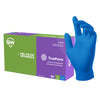


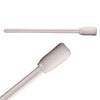
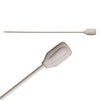
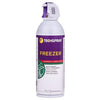
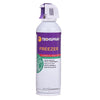
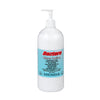


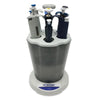




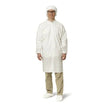


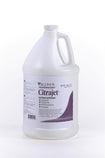
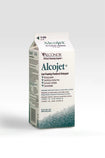
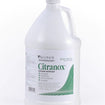
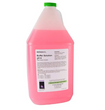






Great Post..
https://www.freshsupplies.ae/Cheese/
If you want best quality disposable medical products, like-: iv cannula, safety iv cannula, 3way-stopcock, 3way stopcock with extension tube, etc. So, please visit our website – https://www.larsmedicare.com/
Lars Medicare | IV Cannula | Safety IV Cannula | IV Infusion Set | Infusion Therapy
#lars #larsmedicare #medicare #makeinindia #india #ivcannula #cannula #gloves #Hypodermicsyringe #syringe #medicare #medical #medicaldisposable #surgical